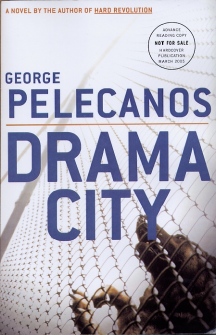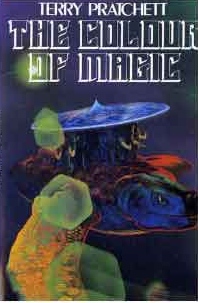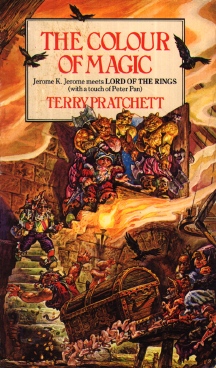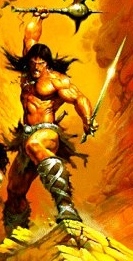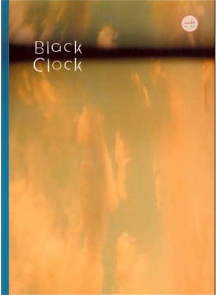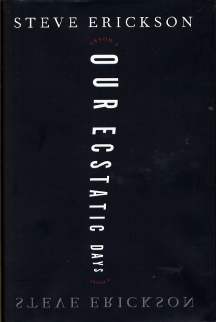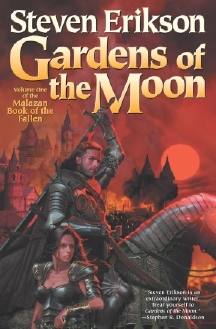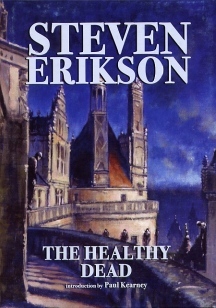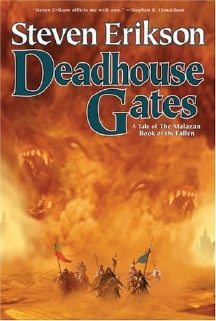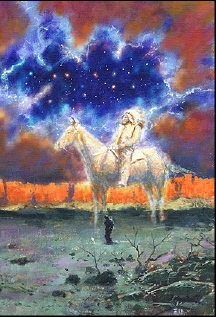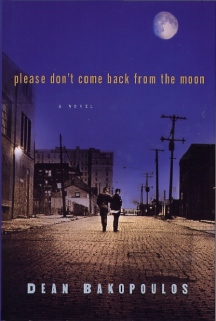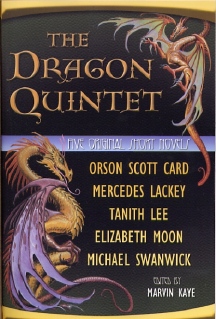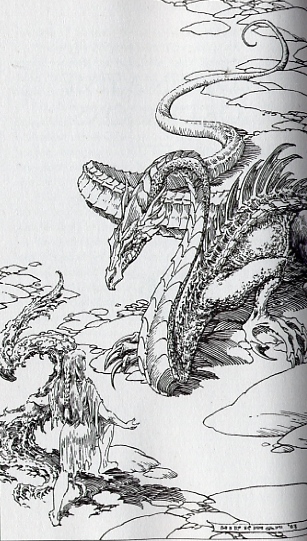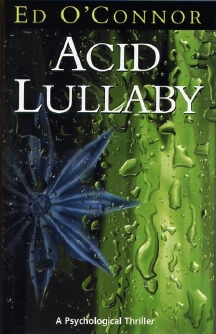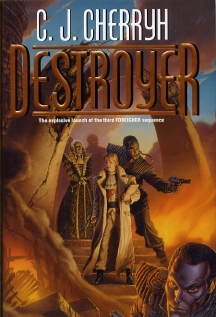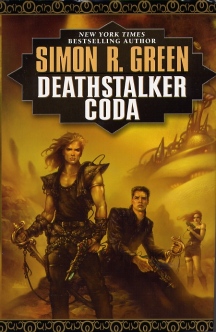|
|
|
This Just In...News from the Agony Column
|
02-04-05: George Pelecanos Visits 'Drama City': Dogcatchers & Drug Runners; Kenzo Kitakata Gets a 'Winter Sleep': Hardboiled Artists; Hill House Re-Invents the Wheel, er Disc |
|||||||
Tough
Times for Tough Guys
But these are tough times for tough guys. That old ex-cop/ex-con duality just isnt good enough anymore. The ex-cops tend to be deceased and the ex-cons aren't going right back on the street. We live in a complicated world and even our hardboiled fiction has to be pretty complicated. As much as we love the gritty simplicity of works like George Pelecanos' Quinn/Strange novels ('Right as Rain', 'Hell to Pay', 'Soul Circus' and 'Hard Revolution'), as much as we like the severely understated Yakuza mobsters of Kenzo Kitikata's 'Ashes', the world has moved on since they were written and so have the authors. Not that George Pelecanos has left the gritty DC underworld that he knows so well. But 'Drama City' (Little Brown / Time Warner Book Group ; March 22, 2005 ; $24.95) features not an ex-cop but instead an ex-con who becomes upon his release, wait for it, a dogcatcher. This isn't the path that one would expect a Pelecanos hero to take, but Pelecanos has a way of avoiding expectations. Having set up Quinn and Strange for a perfect cop-duo endless series, he instead wrote a blistering arc over three novels, with a clear no-exit strategy. Then he looped around and wrote a prequel for Derek Strange, the period novel 'Hard Revolution'. This isnt the standard career plan for the serial mystery writer. Readers who like being jolted about will be happy to pick up the live wires of 'Drama City'. Lorenzo Brown spent eight years in prison on a drug charge. You know, the kind of drug charges that routinely exceed the sentences given for Second Amendment rights exercises in Seven-Elevens or corporate crimes. Now he's back uptown, in the DC neighborhood where he grew up. Chances are he's not working on a 401 K for his retirement, or ready to invest in the stock market. All his old friends are precisely where he left them, working angles, dealing drugs, firmly entrenched in The Life. But Lorenzo's had enough. His new job as a Human Society Officer has him policing animal abusers and protecting the abused. Note that word -- "policing". It's not an act that goes down well with his old friends. It's not like he's got a big support group out there. He does have parole officer, however. Rachel Lopez doesn't have a sterling resume -- you dont get into the parole business with a four-year degree and her past is not something she's willing to brag about, especially since it threatens to catch up with her in the form of unhelpful excesses. Add one more wonderful Pelecanos ingredient...a malevolent young killer working for a drug boss. And maybe a glass of wine to calm your beating heart as you stay up the night reading to find out how Pelecanos orchestrates this tale of return and revenge. While the characters are more complicated, Pelecanos offers his usual transparent prose, stripped down to a burnished shine. Pelecanos told me in my interview with him last year that with his first novel, he wanted to write a punk rock noir. He's still got the simple style of punk rock, but he's grown as a writer and his characters have grown as well. Yes, there's an ex-con, but the journey from drug charges to dog catcher is not the typical noir arc. No doubt, 'Drama City' will live up to its name. But it's clearly going to do so by avoiding expectations, not meeting them.
Kitakata adds a final would-be artist into the equation, an escaped felon who finds Nakagi's studio. Nakagi seeks to teach him to paint as well. Clearly he hasn't completely shed his years in jail. What was once complicated but stable gets unhinged as the new artist seeks to exorcise his pain in painting. It's clearly going to end in tears, but who cries, how loud and why are things that will have to work themselves out in the art of Kenzo Kitakata. Kitakata is a guy who has authored over a hundred novels in Japan, and a perfect example of Vertical-Inc's plan to conquer American publishing by simply bringing out translated versions of popular Japanese authors who havent seen publication in America. While Kitakata does not yet have the movie-based appeal of Koji Suzuki, his tales of gangsters and artists take the elements of American crime fiction and substitute culturally adventurous choices for readers who like to have their worlds upended. And since the world of crime fiction is essentially all about having your world upended, it stands to reason that these novels will offer some dark delights. And give a new meaning to the term splatter. |
|||||||
Hardcover
Discworld Editions
So leave it to the wizards over at Hill House to come up with another completely wild scheme to please discerning readers. This time around, they're cooking up new editions of the first twelve Discworld books. As usual, you can expect the unexpectedly lavish, and even better, a bargain price. For a projected price of $35 a pop, you get new, limited first editions that are perfect facsimiles of the originals in durable hardcovers with all the usual Hill House quality. I'm told that these will be totally identical to the original first editions with the exception of the copyright notice. Noted author Al Sarrantonio is now working with Hill House and he wrote to tell me that, "...for the sake of collectors, we will double-jacket the first book with both the original British first edition cover =and= the Josh Kirby cover which graced a later edition of the book. Since the rest of the eleven books had Kirby covers on the first editions, this will provide Kirby fans and completists with a complete run of Kirby covers for the first dozen books. We're planning to publish the first book in June, and then one every four months after that." I really enjoyed the Pratchett books I've read, and I can't wait to get clean, tight hardcover editions to continue my reading. Moreover, I'm inclined to think that although these editions come at a bargain price, they wont stay that way long. Look for these to show up as soon as I can grab one, because I'm already clearing out a 12-book space on my shelves, without clearing out a similar space in my savings account. |
|
02-03-05: The Two Steve[n] Eri(c)ksons |
|||||||||||||||||||||||||
Literate
Fantasy and Fantastic Literature
Well, I still spout off whatever thoughts come into my tiny brain, but I can't claim to be particularly innocent anymore. And I no longer confuse the two Steve(n) Eric(c)ksons. That's good, because if they were the same person, then literarily that person would be in two not-so-different places at once, with the domestic release of Steven Erikson's 'Deadhouse Gates' and the welcome arrival of the first Steve Erickson novel in seven years, 'Our Ecstatic Days'. Steve -- and Steven -- the worlds of literary and genre fiction need you both! And readers have the unique opportunity to rather different books by totally different writers with slightly different names. I first came across Steve Erickson years and years ago, back in the days before I started obsessively buying and shelving books. (I dont think collecting is quite the right description for what I do, since I'm not a cataloguer. I dont feel like a book collector, I feel like an obsessive book reader. And writer-about.) My wife and I really enjoyed buying and reading the original run of Vintage Contemporary fiction -- Jay McInerney, Kathryn Kramer, James Crumley, Raymond Carver, Barry Hannah, Peter Mathiessen (a teacher of mine at UC Irvine) and most importantly for me, Steve Erickson.
Whatever direction you came at it from, it really didn't matter. Erickson was clearly an original and unique author who'd managed to drive a genre-fiction wedge into the world of literary fiction. Through subsequent novels -- 'Tours of the Black Clock' (1989), 'Leap Year '(1989), 'Arc d'X' (1993), 'Amnesiascope' (1996), 'The Sea Came in at Midnight' (1998) he created a brilliant and oddball oeuvre that inextricably combined science fiction and post-modern literary techniques. The science fiction in these novels was as substantial and adventurous as the literary experimentation. He was talented and fortunate enough to win a solid, positive critical response from both worlds -- literary and science fiction.
But for the inveterate vertebrate novel readers who haunt this website, the real news is that his new novel, 'Our Ecstatic Days' (Simon and Schuster ; February 9, 2005 ; $24.00) is now out in hardcover. This is the first Erickson novel we've had since before the millennium, and it looks quite good enough to make up for his unfortunate absence. From the beginning, this novel is a love-poem from a mother to a child. When a lake appears in the middle of Los Angeles in the middle of the night, a mother begins to suspect that it means to take her child. Somewhere else, in another time, a different woman meets a mysterious figure in the darkness who announces "The Age of Chaos". Zipping about in time, in space, and in the minds of Erickson's characters, 'Our Ecstatic Days' is written with the kind of gorgeous, flowing prose that makes the absurd more real than what is around you. It will take exactly one page for readers to be swept up in Erickson's marriage of powerfully wielded language and his highly entertaining visions. It's an odd combination, to be sure. The language seems to flow from a pen dipped in beauty, and the visions belong to a man who has watched 24-hour three-dimensional cable news television from the next 100 years, chatting in a room with some ordinary and not-so-ordinary people who endured those years, "The Age of Chaos". Yes, the clincher is obvious. We're already in "The Age of Chaos". We're well into a future that promises to bring revolution and evolution -- only we may not be allowed to teach the latter in our schools. Perhaps, we'll be allowed to teach Erickson's fiction, which may break up the minds of the children as effectively as Darwin. Steve Erickson is a man who lived past the millennium well before the millennium came to pass. He reported his findings to us in his novels like 'Rubicon Beach', 'Tours of the Black Clock' and 'The Sea Came in at Midnight'. Now we're up for another tour, and I am definitely on board. But I'm being prudent. I'm bringing the literary re-breather, and a gondola to tour the streets of Los Angeles.
That way, in 2005, we can enjoy the release of 'Our Ecstatic Days' by Steve Erickson and 'Deadhouse Gates' by Steven Erikson (Tor / Tom Doherty Associates ; February 15, 2005 ; $14.95). 'Deadhouse Gates' is the second novel in The Malazan Book of the Fallen series (after 'Gardens of the Moon'), originally released in the UK and Canada in 2000, and released in the US this month by Tor. We can be thankful that Tor kept the original UK cover art by Steve Stone, rather than another "Do you like Gladiator movies?" cover such as was featured on last year's release of 'Gardens of the Moon'. In case you're not confused enough, this Steven Erikson is in reality Steven Rune Lundin, but let's just call him Steven Erikson for what in this article will pass for simplicity. Now, this Steven Erikson may be working in the outwardly tired realm of huge-scale, endless series, epic fantasy, but don't let that lead you to think this is boilerplate sword and sorcery.
'Deadhouse Gates' begins as the seer Sha'ik and her followers prepare for fanatical jihad known as the Whirlwind. Things get worse. For 608 pages.
Readers of these series might take heart from the work that Erikson has done, and even, for once, from the super-delayed time release of these books in the US. Now I do wish that Tor had done a hardcover of 'Deadhouse Gates' but, there you go. We take what we can get, right? At least the cover art won't embarrass you. So, the deal is that ten books are planned in The Malazan Book of the Fallen series. Here in the US, we're getting number two and in the UK, they've already got numbers three through five ('Memories of Ice', 'House of Chains' and 'Midnight Tides') with number six, 'The Bonehunters', due in July of this year and number seven -- 'Reaper's Gate' due out in April of 2006. That's a remarkably fast-paced release schedule that speaks of an author who actually has a plot, a plan, or the excellent ability to invent both at a rapid clip.
Having not only created a world but also having conquered it, one wonders what direction Erikson's work might take once he gets shut of Malazan. And it should not be too surprising that one needs only look to PS Publishing which has on its schedule 'The Devil Delivered', a new novella, set this time in a dystopian near future of ozone depletion, cyber-lurkers and Lakota spirits. This is quite exciting, since it's clear he'll bring the same detailed and dense vision to his science fiction that he brought to his fantasy. After that, PS has a title only -- 'Fishin' With Grandma Matchie'. And who knows what the hell that will be like -- other than carefully imagined, well written and fairly dark. At a guess. With luck, by then we'll have new issues of Steve Erickson's literary magazine 'Black Clock' and perhaps another novel. From the Pynchon-blurbed Steve Erickson to the Donaldson-blurbed Steven Erikson, we'll have more worlds to explore than we'll know what to do with. We can be certainly thankful that in Steve Erickson's world, at least, the diapers are Pampers, and they're worn by babies. |
|
02-02-05: Douglas Coupland's 'Eleanor Rigby'; Dean Bakopoulos 'Please Don't Come back from the Moon' |
||||||
"I
took the cash."
Because "Is that all there is?" Yes, that's all there is. Why is it that writing about huge acts of bravery is not brave, while writing about those who lead essentially cowardly lives is an act of bravery, of daring? Count it all down to that so-called all-knowing market, the market that's in too much of a hurry to take note of the fine details, the small kindnesses and the minor victories that make life worth living. Most of the time. There are exceptions to every rule, even the rule of the market, of the hero, of bigger-and-badder than life. Readers need to look farther to find them, but the small books are there, and they can triumph in a way that big books cannot ever aspire to. No hot air balloon ever did the laundry, washed the dishes or cooked the family a nice meal. You've got to take your victories where you find them. Let 'em vanish in the trailing of time. Tonight, you can pat down your favorite chair, pull up your favorite drink in your favorite glass, and settle down with a small book about the big wins in a tiny life, life on a scale you might experience. Douglas Coupland's 'Eleanor Rigby' (Bloomsbury Books ; January 10, 2005 ; $22.95) is the story of Liz Dunn, drab, overweight, crabby, friendless. Middle-aged, unmarried, Liz looks forward to oral surgery. She preps for it with an orgy of schmaltzy videos. But there in the parking lot in 1997, she sees Hale-Bopp and decides to change her life, to stop controlling it and "go with the flow." This proves to be a wise, if necessary decision, because soon afterwards, a young man ends up in the local hospital wearing a MedicAlert bracelet with her name on it. And his arrival does manage to change her life, in the small ways that surprise arrivals change all our lives. One friggin' day at a time. Coupland has an eagle eye for the niceties of suburban life. His novel 'Hey Nostradamus!' went to the far end of bad as it traced the ripples created by a school shooting in the lives of those who survived, and those who did not. This time around, he's addressing the subject of loneliness. It's not something we like to talk about. It's an admission of weakness, something we experience in the small moments of our lives. It's certainly not a great conversational topic. But if anyone is able to turn loneliness into a great novel, it's Coupland. He actually talked a bit about this topic in my interview with him back in 2003. It's certain that he treats it with his usual flair for humor and for the absurd. Because you know, you take all this stuff too seriously, and you'll get to tired to read about it. Even the small facets of life are often best experienced at a literary distance.
What you should expect is tight characterization, evocative prose and for the apples to not fall too far from the tree. Those sons are not going to come to a happy lifetime of family fun. Of course, few of us do. Mostly, you'll find out, having a family involves a fair amount of hard work, heavy lifting and a willingness to endure. Showered with rewards? I dont think so. Showered with rejections? That sounds like a more likely scenario. Both Coupland and Bakopoulos, by tackling the smaller lives, take on the bigger task. The heroic life, the life that's larger than life, well, it's pretty simple. No rocket science is required to understand "The Hero's Journey". If you haven't caught the ten thousand PBS specials then you can have that story arc hammered into your brain in surround sound on a ninety-foot screen. In case, you know, you might miss something and somebody's nostril has to be about five feet high for you to get it. But if you dont need the five-foot nostril, you might enjoy curling up with a book that has one foot on a street remotely resembling a street you might tread. And you might enjoy a story that offers witty prose and intelligent characters. But not impossibly intelligent. Maybe not even smarter than the average bear. It is possible. You can read about life shaken, stirred, splintered, shattered and put back together again, if not intelligently, then in the entertaining fashion that you yourself might have to resort to. With duct tape and clothespins and chip-bag closers. Of course, if you'd rather make the hero's journey into that five-foot high nostril, have at it. I'm sure the local theaters will take your money. But the seats wont be as comfortable as those back home. |
|
02-01-05: Marvin Kaye Queues Up 'The Dragon Quintet'; Tim Kendall-Carpenter, Bookseller Beyond |
||||||
Card,
Lackey, Lee, Moon and Swanwick Get Wings and Scales
"This world needs more books about dragons!" Well, clearly that thought occurred to Marvin Kaye, whose previous anthology, 'The Vampire Sextette' included some highly prestigious names and was itself quite desirable. So, in a world filled with hunger (for books about huge reptilian beasts that can fly) and poverty (of new novella-length work by writers of speculative fiction), a collection of five novellas about dragons was born. As long as our priorities are straight, ahead we go! And forward we go (wearing our fire-retardant stunt-man jumpsuits) to greet the arrival of 'The Dragon Quintet' (Tor Books / Tom Doherty Associates ; February 3, 2005 ; $13.95). Kaye's been around for many years, has edited a bunch of books and has managed to line up five top-shelf but rather disparate names for this collection. This is good news for those of us who like our themed anthologies to contain wildly different types of work. Kaye has clearly got a wild variety in this collection, and the novella-length adds a nice frisson of appeal to this reader, who is not thrillingly enamored of the short-story format. So, what do you get for your fourteen bucks? Well, first off, this is a nicely-done trade paperback reprint of a 2003 hardcover. It might have first existed as a Science Fiction Book Club Original, with a Tor hardcover that followed. I missed it the first time round, but my eye is not trained to identify all dragon-oriented fiction. While I do love monsters, and dragons are indeed fine monsters, they're not exactly an endangered species in the speculative fiction world. The cover art, or more precisely the design, is unremarkable, but the interior illustrations, which I'll presume are by cover artist Stephen Hickman, since nobody else is credited are rather nice -- one per story. You get a concise and to-the-point introduction to by Mr. Kaye; I'm guessing 1,000 words on dragons in general and about 50 words on the stories within. With each story, you also get a paragraph introduction from Kaye. He's there enough to entertain and entice, but not enough to annoy. Good choice.
'Judgment' by Elizabeth Moon, noted for her milchick SF -- and a recent novel that transcended genre, 'The Speed of Dark', treads a much more conventional road. Boy / village / dwarves / dragons. Pretty simple stuff, but Moon is pretty talented. 'Love in a Time of Dragons' by Tanith Lee is not going to ruffle any scale-feathers either. Maid / champion / dragon. Invested, of course with Lee's trademark heady mix of erotica and exotica. Pumped up and ready to steam. Mercedes Lackey's 'Joust', which I'm suspecting might be the seed of one of her recent releases, offers the time-honored formula of Slave / Warrior / Dragon with a soupcon of freedom thrown in, because, when you look at the world around you, isnt it all about freedom? Or freedom from freedom, depending on how you slice'n'dice. Which brings us round to the iconoclastic Michael Swanwick. Remember, here's a guy who has 'The Iron Dragon's Daughter' on his resume, so he's well versed in large-scale reptilian aviation. And, as you might expect, he's got a very peculiar, and, we are enticingly told, repellent critter called 'King Dragon' that's a hodgepodge of Messerschmitt Me-323 "Gigant" Transport and faerie magic. With a disposition that trends towards that of the German warplane. Oh delightful! This I have to see, that is, read. So, look around yourself, revel in your freedom to buy 'The Dragon Quintet' and enjoy your life without large, fire-breathing monsters hovering overhead, wreaking destruction. This is one of many things that are better read about than experienced. Of course, I'm waiting for the monster helicopter anthology. Looking around the world today, I detect that there are far too few monster helicopter anthologies. How hard can it be? Cop/flamethrower/robbers. The UN. Come on, what's the first thing you think of when you wake up in the morning? Don't you worry about 'Black Helicopters Over America'? Well, you're not looking around closely enough then, are you? |
||||||
A
Tale of Exemplary Customer Service
What you won't find as often is a tale like the one I'm going to unfold. So, here I am in a positive fever to get a book. Whoda thunk it? Well, I didn't say that this tale would be unique, merely uncommon. But I digress. The book I'm looking for is a UK first edition of is David Mitchell's 'The Cloud Atlas'. It's pretty scarce at this point. (I'm looking for it, because I'm a total Johnny-come lately. As much as I like to try to keep ahead of the curve, it's still tough. Not that I hadn't been interested in Mitchell's work for some time. 'Ghostwritten' and 'Number9Dream' both were on my to-buy list, but they didn't leap out in front of me. Look, I'll cop to being clueless so that I can get to the point. ) One of my favorite UK vendors, Tim Kendall Carpenter happened to have a copy, which I bought. Being well behind the curve, I was in no hurry to get it, which turned out to be good. The shipping from the UK, which is always on the slowish side, took long enough that I dropped him an email. He was quite apologetic and it showed up shortly thereafter, and I really wasn't all that worried about it. Tim Kendall Carpenter was, however, and a couple of weeks ago a package showed up from him which included two, count 'em two free books. One is the pictured thriller 'Acid Lullaby' by Ed O'Connor. It's a pristine, signed first edition hardcover from a small UK press, a gritty thriller that introduces me a new writer and looks pretty interesting. As if that wasn't more than enough -- it was -- he also included a book of millennial poetry. Nice cuts and quotes from a variety of poets, a fine enough have-it-around-the-house coffee-table book. And all this to compensate for something I considered to require no compensation. So here's my recommendation and hearty thanks to Tim Kendall Carpenter, an extraordinary bookseller who went to great lengths to ensure customer satisfaction and eminently succeeded. |
|
01-31-05: CJ Cherryh's New Foreigner Novel, 'Destroyer'; Simon R. Green's 'Deathstalker Coda' |
|||
Three of A Perfect Pair
C. J. Cherryh's 'Destroyer' (DAW Books / Penguin Putnam ; February 1, 2005 ; $24.95) might just be the tip of a very large iceberg. Actually, at this point, you're a good deal of the way into the iceberg, as this is the seventh book in the series that began with, duh 'Foreigner'. Cherryh's specialty is the creation of complex, multi-layered alien civilizations and their relationships with equally complex, multi-layered, star-faring humans. With six novel-length entries in this series, things have gotten quite dense and intense. As the second trilogy concluded in 'Explorer', the starship Phoenix had rescued stranded colonists under attack by an alien race. They'd escaped due only to the negotiating talents of Bren Cameron, a human paidhi to the atevi court and Ilisidi, an ambitious atevi dowager. But upon return to atevi space, they learn that civil war has broken out and complicated has just gone downhill into cluster-- well, chaos. And there is apparently no rest for the negotiators. Cherryh's work has an enduring appeal for her huge audience. She's written over fifty books, and one must surmise that having done so, she's become quite good at it. As mystery readers know, there are few events as satisfying as the next book in a beloved series. Readers come to regard the characters as old friends, and catching up with them as they leap from frying pan to fire and back to frying pan again is the essence of a great serial reading experience. But the science fiction world is at a distinct disadvantage to the mystery world when it comes to what one might call the "infinite series". They dont have a great rep. As wonderful as 'Dune' was, the immediate successors were not so highly regarded. While in the mystery world, a series is regarded to have at least 26 viable entries (as Sue Grafton seems currently determined to demonstrate) in the science fiction (and fantasy) worlds, thanks to the endless popularity of a certain English scholar, a series equals exactly three books. A series is a trilogy, period. Except when it isn't. Cherryh's 'Foreigner' work is perfectly happy and appropriate to play out across as many novels as she'd like to write. But "Book 7" in an infinite series won't play in the halls of science fiction publishing without some executive replaying that memorable scene from 'Scanners' where a talking head gets so inflamed as to explode. So what's the solution? Well, you do a series of trilogies. Or more precisely here, a trilogy of trilogies. 'Destroyer; is the launch of the final trilogy in the Foreigner trilogy trilogy. The 'Books by...' page even goes so far as to list the next book in the concluding trilogy trilogy, 'Pretender'. But clearly Cherryh has a huge investment in this universe and is understandably loath to leave it behind. So how to get beyond the third book in the third trilogy? Oh, I think you've guessed it now. When the first trilogy trilogy concludes, Cherryh can begin the second trilogy trilogy in her trilogy of trilogy trilogies. Got that? And is it just a coincidence, just one of those numeric weirdnesses that crop up, that in the SFnal world, the trilogy of trilogy trilogies offers the opportunity for 27 novels, one more than Grafton's golden retirement number of 26? Or is there a clue buried somewhere in Tolkien's 'The Lord of the Rings', that points to his part in the secret cabal of publishers, founded by Johannes Gutenberg when he gave virgin birth to the printing press, the cabal dedicated to foisting book after book on a public in desperate need of sedation, the first volley of the weapons of mass distraction? Or am I just seeing conspiracies where none actually exist? I think maybe I need a break from all this reading and thinking about reading. A trip to the art museum, perhaps. |
|||
Death of the Deathstalker Series?
Speaking of infinite series, when I read that with 'Deathstalker Coda' (Roc / Penguin Putnam ; February 1, 2005 ; $23.95) "The Deathstalker Saga reaches its exciting conclusion", I hope readers will understand --especially in light of my previous rant -- that I'm just a tad dubious. Especially since this is by my count just novel number 8 in the Deathstalker Saga. Obviously another one will be required! That said, it's going to be tough to top the setup here. Owen Deathstalker isnt just traveling in space, he's got to journey back in time to prevent a tragedy. I just hope he's using the time-tested technique of going really, really fast around the solar system until "time itself comes to a halt". Oh, I miss my halcyon days of being twelve years old and watching 'Star Trek'. Which might explain why I find the whole Deathstalker universe pretty intriguing. Lewis Deathstalker has got to steal an Imperial Fleet -- not just a bit of shoplifting mind you -- and take up arms against the Emperor himself, a despot named Fin Durandel. I must say that had I not read Green's wonderfully well-written 'Nightside' books, I'd be pretty dubious about the Deathstalker deal. In fact, the Science Fiction Book Club just released a hardcover omnibus of the first three books in that series, 'Everybody Comes to the Nightside'. This is Very Cool. Too bad I can't find it -- or the two-fer Kage Baker -- on their website. The Nightside Novels -- 'Something from the Nightside', 'Agents of Light and Darkness' and 'Nightingale's Lament' are quite fun, kicky little novels set in a surreal bit of London where it's always 3 AM and the gods and monsters walk the streets with unfortunate humans. Green's superior and humorous prose and his unwillingness to take it all too seriously make these books something I constantly look forward to. In fact, a new one's coming out soon, and you'll find out about it here. The talent that Green brings to his Nightside books, published as original MMPBs is the kind of talent that he couldnt possibly conceal in the 'Deathstalker' books, so I salt these guys away waiting for the very rainy day that we all know is going to come. Of course, as I poke about the meaning of the word "coda" I realize that Green is going to have to work pretty hard to come up with a post-Coda-l title. Or maybe not. No reason he can't take a cue from the religious world and simply perform a 'Deathstalker Resurrection'. Of course, he might want to use that option to start the third trilogy in the Deathstalker trilogy trilogy. |
